This week we get another gift in the form of a fresh look at a literary connection made in For Christmas which puts a whole new spin on hope and healing, courtesy of Kirsten's latest guest blog!
The reality of Oliver’s character, and the knowledge that he does indeed have a book on his bookshelf that shares the traits outlined above, make us wonder at Oliver’s inability to actually read it. The title is A Christmas Carol, by Charles Dickens, written in 1843. The book was instantly a bestseller, and is popular still today. In Signed, Sealed, Delivered: For Christmas, Oliver says he read the book in high school, and has been wanting to reread it—yet cannot get himself into it. It seems he has become estranged from even “books, and things from the past”—the things he loves. The reality of loss, coupled with the fact that a main character introduced in the film is a Jordan Marley, causes us to take notice. Books frame our thoughts, and often provide a sort of commentary on our lives. Perhaps Oliver is afraid of that. His reticence could translate into his avoidance of the scrutinizing eye of the story. Yet when our own vision is insufficient, and our own will unequal to recalling a sense of goodness, goodness itself still acts on its own behalf. Such is the case for Ebenezer Scrooge, and so it is with Oliver, when Jordan Marley walks into the story.
| The Visit of Marley 1843. It is Christmas Eve—the occasion for Jacob Marley’s unusual visit to Ebenezer Scrooge. Marley was Scrooge’s old business partner, and he had died, seven years before the story begins. But the opening of Dickens’ story relies on Marley’s mysterious reappearance, in the form of a phantom. He gives Scrooge an important message: “I am here to-night to warn you, that you have yet a chance and hope of escaping my fate…You will be haunted…by Three Spirits.” Scrooge asks if that is “the chance and hope” Marley alluded to earlier. “It is.” |
Marley cannot change Scrooge’s mind and heart. His words cannot be any sort of prediction. But in the phantom’s warning is a gift. Though Marley’s words are elusive, they are significant—what they mean in the moment is that Scrooge’s circumstances, though not yet changed, can carry one important thing—the expectation of hope. Hope alludes to goodness and light (which is a far cry from Scrooge’s love of “cheap” darkness). Scrooge needs Marley’s message. By Dickens’ words, he is a “grasping, covetous old sinner.” He does not value people (except in their ability to provide him business); he does not value love (as everyone whom he ever loved is died or lost to him); and he certainly does not value Christmas (“humbug” he calls it).
| 2014. It is Christmas Eve—the occasion for Jordan Marley’s visit to the POstables. As coordinator for the Christmas exchange, he is initially “sent…to troubleshoot the Christmas rush.” As the story opens, we know that Jordan Marley is meant to impact the POstables in some way, just from hearing his name. As it turns out, Oliver needs Jordan to step into his story, in the same way that Jacob needed to visit Scrooge. |
The First Spirit
1843. The First Spirit that visits Scrooge is the Ghost of Christmas Past. Dickens remarks that one of the Spirit’s more notable features is that “from the crown of its head there sprung a bright clear jet of light.” At the occasion of Scrooge seeing scenes from his past, and once again entering into the remembrance and the joy of them, “the light upon [the Ghost’s] head burnt very clear.” Yet not everything the Ghost shows Scrooge is happy and merry (though there is that), for along their journey are sad scenes, and many things Scrooge had forgotten. The Ghost shows him again the workings of his heart in valuing money over people—and how he thus despised love. And what comes of those scenes is a revealing of the truth about life and past love that Scrooge cannot deny, or command away. When Scrooge realizes this, and when the reflection on the face of the Ghost was like “fragments of all the faces it had shown him,” Scrooge struggles with the emotion occasioned by his memories. Yet even though he seeks to cover over them by extinguishing the light of the Ghost, “he could not hide the light.”
| 2014. There is something about Jordan Marley’s presence that enables shut up hearts to speak their stories. Oliver tells him about his wife’s departure and his being alone for Christmas. Shane tells him about questioning God because her dad left them when she was a girl. Their stories are filled with memories of pain, yet there is importance in their being remembered. Sometimes, in wanting to live beyond the past, there is a danger in misunderstanding the present, and that vision affects who we become. Perhaps our awareness of the intention of goodness is wiped away with the consuming nature of pain. Shane herself realizes this when she says to Oliver about the affect of her past hurt—“her heart kind of freezes, and if she’s not careful…She turns into kind of a Scrooge and rejects God and Christmas…” Oliver, knowing Dickens’ story, continues for her—“Goes around saying ‘bah, humbug’?” |
After Ebenezer Scrooge has remembered the past, he is ready to consider the present with a clearer vision. He is ready to feel keenly the conditions of his choices: how he has left himself bereft of the affects of love, and how he yet has the power to extend provision and care to others. When Oliver is sharing about his memorable visit to the Postal Museum, Jordan presents a letter needing delivery—suggesting that even in the midst of loneliness and uncertainty, Oliver yet has the power to step forward and provide answers for others. In a similar scene, Shane asks Jordan what it is about him that gives her the freedom to speak about her past, Jordan replies that perhaps she was “ready” to share it.
Jordan presents another letter to the POstables—Hannah’s letter to God—and the aim of both of his letters is similar. Hannah’s letter directs the POstables to Denver Mercy Hospital (another intentional name), where they will watch over someone else’s story. And their journey will include festive attire, lights, and singing…
| 1843. Oh yes, the singing. Dickens does not neglect a description of the sounds of Christmas. Scrooge and the Spirit of Christmas Present rove the streets of London, watching the people hurrying about their business, and observing their gladness of heart even in the midst of the cold. The Ghost carries his own “Christmas spirit” around with him, for he is a giver of goodwill. He blesses even the small meals of the poorest of the people, showing those gifts to be a provision of goodness in the world. And it is in this visit of the Second Spirit that Scrooge receives a sort of mercy. He observes the telling of other people’s stories—and begins to feel interested in noticing them. |
The visit of the Ghost of Christmas Present is very closely followed by the appearance of another Spirit. Perhaps the importance of “now,” and the intent of the Spirit of Christmas Present lies in its ability to re-frame the past with truth, in order to speak most clearly into the future. Loss does not negate the presence of hope, and the opportunity to gift hope to others. This is the intent, function, and even symbolism of the Christmas pageant at Denver Mercy Hospital—organized in spite of health uncertainties, spa plans, and loneliness. It is a picture of Shane and Oliver claiming hope, not only for themselves, but for others.
| The Third Spirit 1843. The visit of the Ghost of Christmas Yet To Come provides a rather grim portrait for Scrooge. He witnesses the aftermath of an unnamed old man’s death, walks the streets of London looking for himself in his usual place (but never finding himself), and searches for tenderness connected with his sadness for the lost and forgotten man. The Ghost finally reveals the truth of these visions: Scrooge himself in the lost, old man. Scrooge is seeing the future as it could be, and is likely to be, if the course of his life is not altered. |
“The End of It”
1843. Scrooge awakens on Christmas morning, to light and life. He has Time before him, and his resolution is to “live in the Past, the Present, and the Future!” He has been remembered, and he will remember now too—and act upon it. Dickens provides a wonderful description of this moment, enough to make the reader laugh aloud with Scrooge at the sheer joy of being given another chance. Scrooge says to himself, “I am as light as a feather, I am as happy as an angel, I am as merry as a schoolboy…It’s all right, it’s all true, it all happened.”
| 2014. Oliver walks into the DLO as if awakening on Christmas morning, to find that he is cared for. The tree in the DLO tells him that, when he opens the door and finds the place filled with light. It is like he is again “a schoolboy,” able to decorate that tree again. And the note from Jordan is as if to say—like Scrooge long before—“It’s all right, it’s all true, it all happened.” And, just as Scrooge celebrated with his family, Oliver’s POstable family returns so that they can all be together for Christmas. |
He became as good a friend, as good a master, and as good a man, as the good old city knew…it was always said of him, that he knew how to keep Christmas well, if any man alive possessed the knowledge. May that be truly said of us, and all of us! And so, as Tiny Tim observed, God bless Us, Every One!
~Kirsten
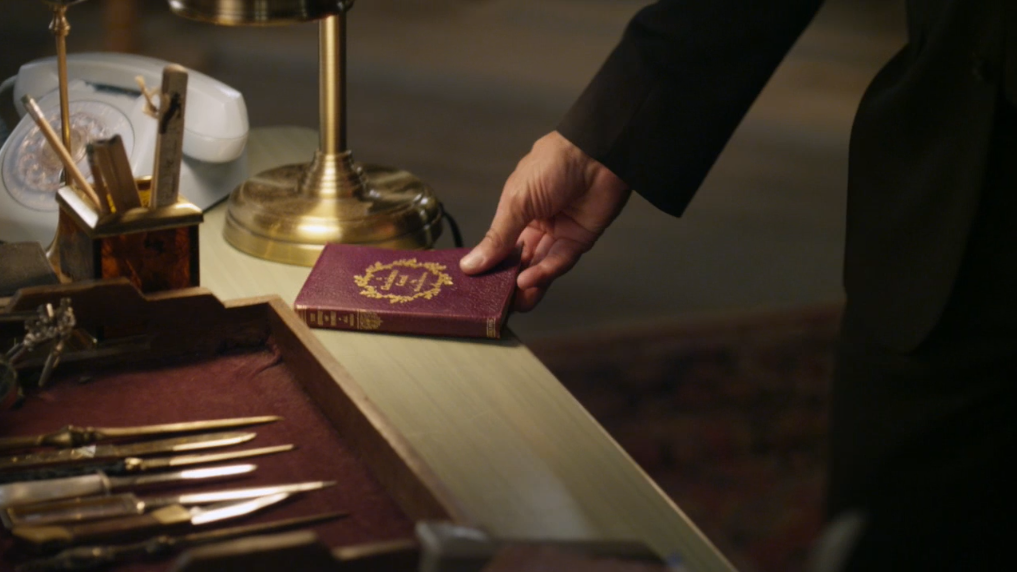
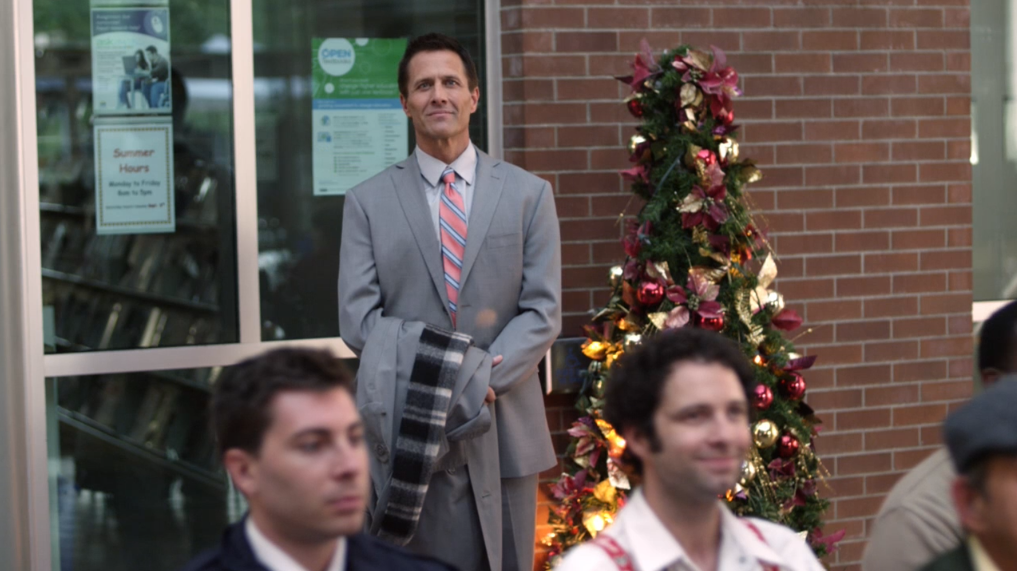
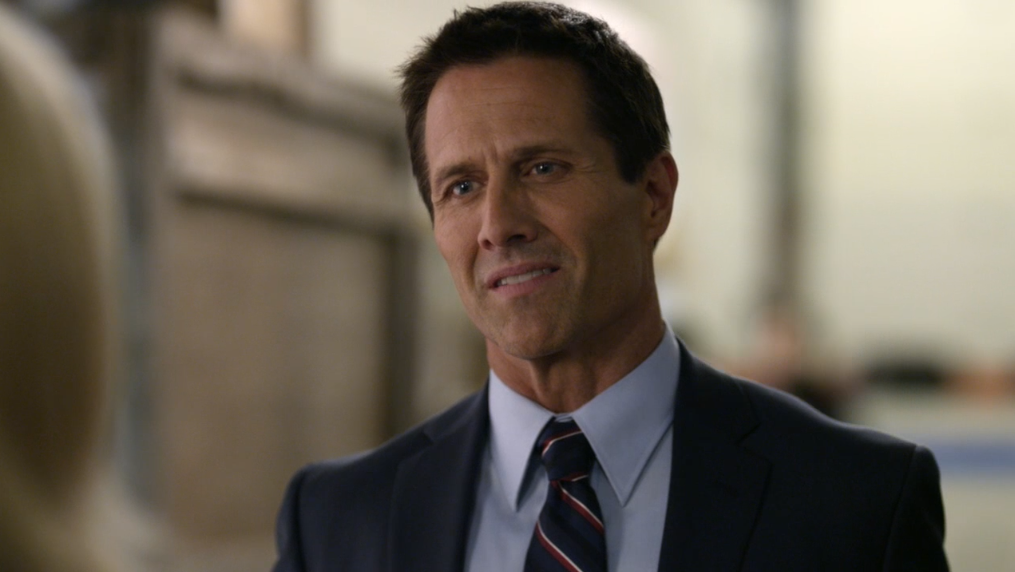
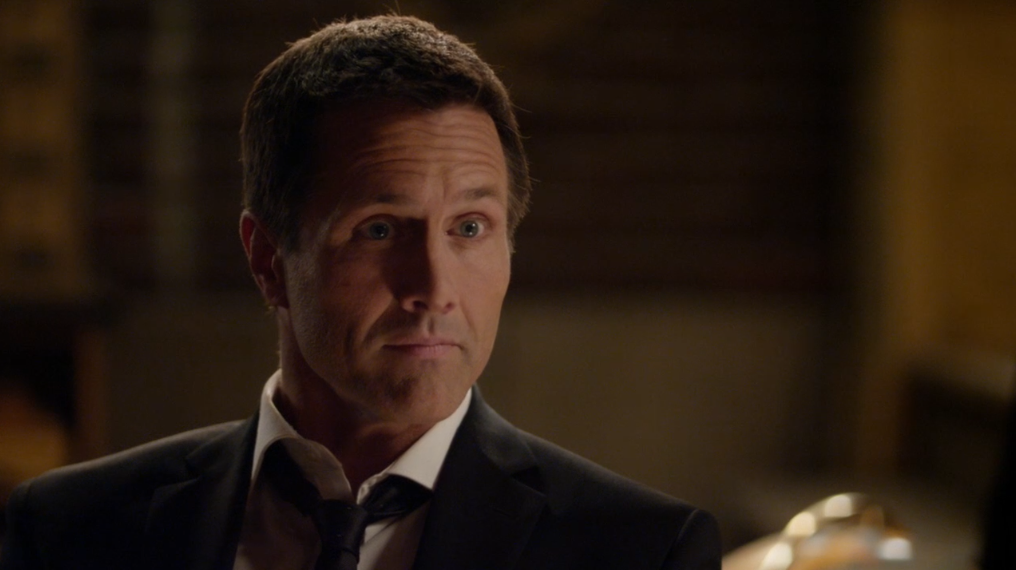
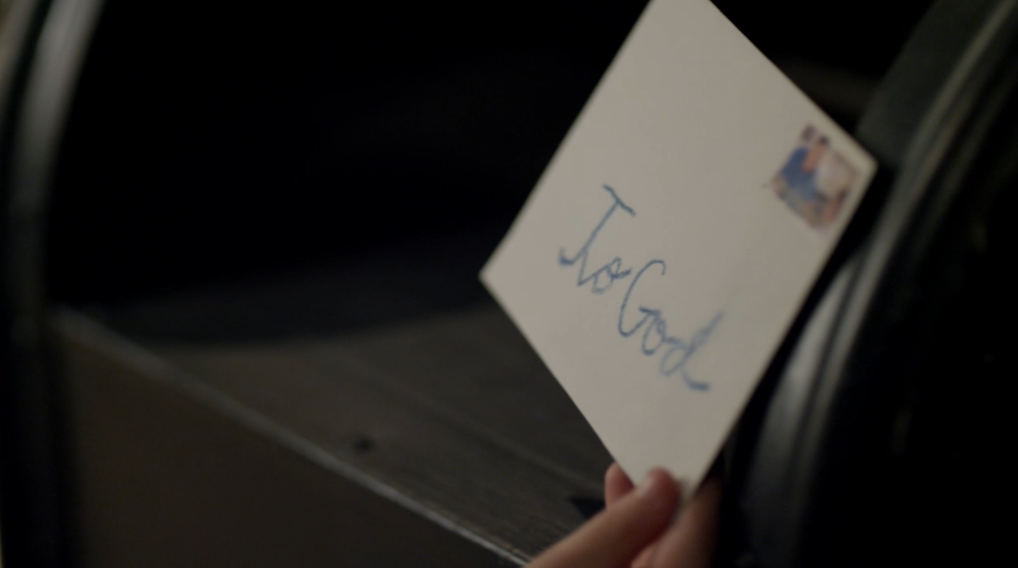
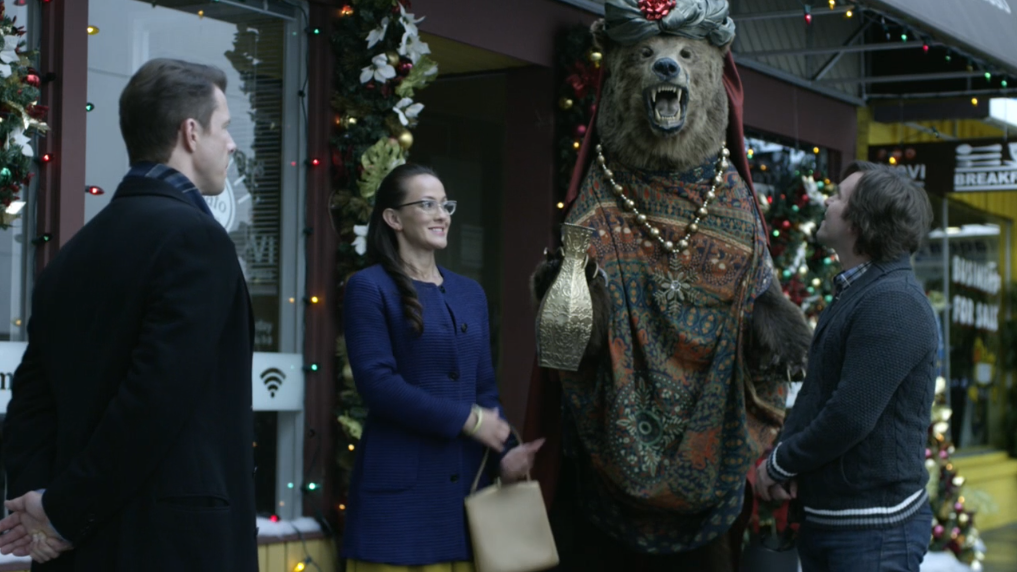
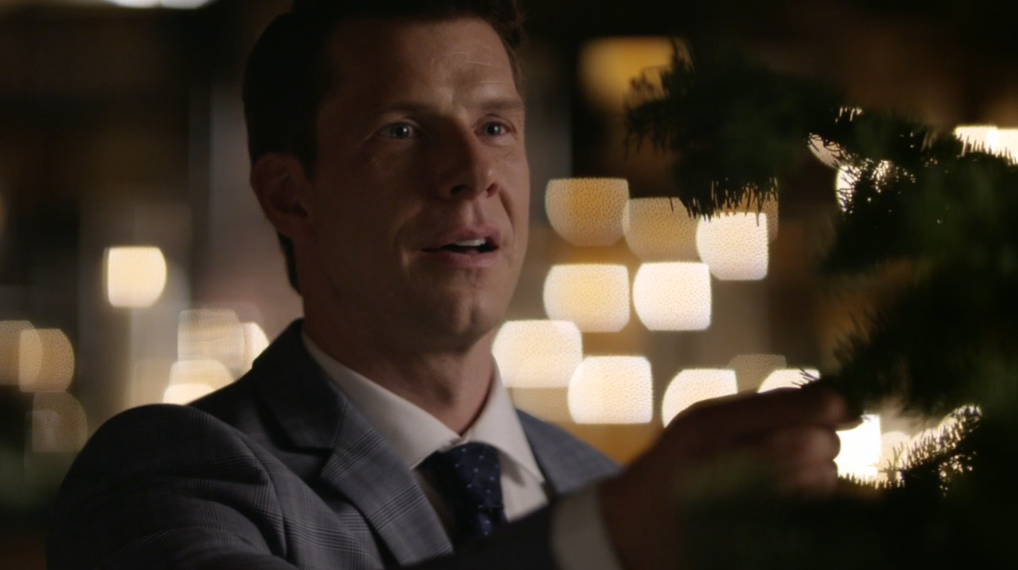
 RSS Feed
RSS Feed
